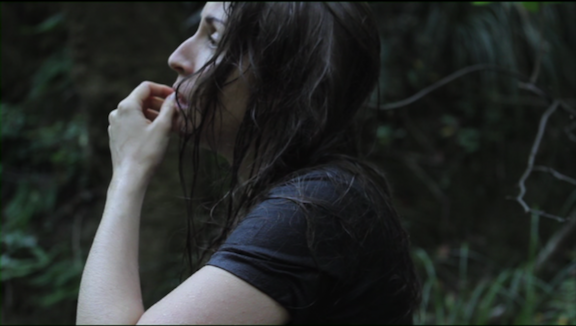“There is no lack of female directors.”
That’s one of the main take-aways from Oscar-nominated director Lexi Alexander’s recent post on the institutional sexism plaguing the movie industry. Alexander argued that there are plenty of female filmmakers willing and able to make movies, but it’s difficult for many to move up from the ground floor because of entrenched bias against women in leadership positions.
Proving just that point are the selections of the Berlinale’s Forum, the Berlin International Film Festival’s “overview of independent, artistic filmmaking with a disregard for convention.” A third, or 13 of 39, of the Forum picks are from women directors. There’s clearly no shortage of female storytellers with talent and enthusiasm, especially when money’s more or less a non-issue. (Also see: documentaries.) The only thing lacking are the opportunities for women directors to have a fair shot at working in the medium they love at higher, more conspicuous levels in the industry.
In the Berlinale’s press release, the festival highlights some of the Forum features:
Actress Josephine Decker pulls off a highly original twin pack in this year’s programme: her directorial debut Butter on the Latch about the uncanny experiences of two friends in a Californian forest screens alongside her second feature Thou Wast Mild and Lovely, a dark love story set on a farm in rural Kentucky that ends in catastrophe.
An old man bearing the scars of a life of factory work lies at the heart of the documentary-like Polish feature Huba (Parasite) by Anka and Wilhelm Sasnal. His daughter moves in with him, alone except for her small baby. A story of being thrown back on naked existence, of cramped quarters, the unfamiliar, intimacy, closeness and bodies — at the beginning of life, at its end and somewhere in between.
Chilla (40 Days of Silence) by Saodat Ismailova is a further directorial debut. The young Uzbek director tells the story of Bibicha, who takes refuge in her grandmother’s house to sit out the traditional vow of silence. Moving between the barren landscape outside and the bright colours within, the film traces her rocky path toward self-determination.
The Japanese feature debut Forma by Ayumi Sakamoto revolves around two former school friends who have since gone their separate ways. Having built a successful career, Ayako offers Yukari a position in her company, who has thus far only had various menial jobs. The two friends now play the roles of boss and subordinate, as their differences come ever closer to the fore.
Offbeat American feature She’s Lost Control by German director Anja Marquardt is another directorial debut, centring upon a therapist who tries to teach her clients what they fear most: physical contact with other people. Her relationship with a new patient ruthlessly calls into question the boundary between professional and private intimacy.
Scroll down for the list of female directors featured at the Berlinale Forum:
Butter on the Latch by Josephine Decker, USA — WP
Casse (Scrap Yard) by Nadège Trebal, France — IP
Chilla (40 Days of Silence) by Saodat Ismailova, Uzbekistan / Tajikistan / Netherlands / Germany / France — WP
Forma by Ayumi Sakamoto, Japan — IP
Huba (Parasite) by Anka Sasnal, Wilhelm Sasnal, Poland / United Kingdom — WP
Kumun tadı (Seaburners) by Melisa Onel, Turkey — WP
Nagima by Zhanna Issabayeva, Kazakhstan
Pădurea e ca muntele, vezi? (The Forest is Like the Mountains) by Christiane Schmidt, Didier Guillian, Romania / Germany — WP
She’s Lost Control by Anja Marquardt, USA — WP
Thou Wast Mild and Lovely by Josephine Decker, USA — WP
To Singapore, With Love by Tan Pin Pin, Singapore
Töchter (Daughters) by Maria Speth, Germany — WP
Top Girl oder la déformation professionnelle (Top Girl or la déformation professionnelle) by Tatjana Turanskyj, Germany — WP
(WP = World premiere, IP = International premiere)







